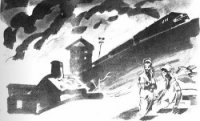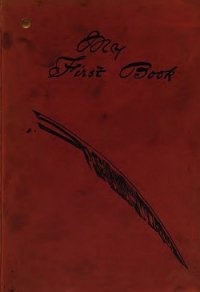Operation Nemesis: The Assassination Plot that Avenged the Armenian Genocide - Bogosian Eric (читать книги полностью без сокращений txt) 📗
The next morning Shiragian cleaned and checked his pistol, caught the train out to Said Halim’s neighborhood, and posted himself outside the villa. Helena, his neighborhood girlfriend, happened by, and before Shiragian could avoid it, he found himself engaged in amorous conversation. Trying to keep his distance, he claimed that his father was arriving any minute and that he couldn’t stop and talk to her. Helena was confused. Hadn’t Shiragian told her that his father was dead? Also, why would he be meeting his father in this neighborhood? Hardly paying any attention to her, Shiragian kept a lookout for the approaching horse-drawn carriage.
According to his memoirs, having spied the carriage, Shiragian stepped away from Helena into the middle of the street and placed himself directly in its path. In one deft move, he raised his hand, forcing the horse to rear, then slipped around to the side, stepped up onto the running board, and, face-to-face with the startled former Grand Vizier, fired once. The bullet caught Said Halim square in the middle of his forehead, killing him instantly. Shiragian then turned his gun on the former Grand Vizier’s bodyguard, Tevfik Azmi, and ordered him to throw his weapon out the window as the startled horse, with the carriage in tow (and Shiragian hanging on to its side), raced down the avenue. Shiragian, who was not only an able assassin but an effusive narrator, describes the moments after the assassination with the imagery of an action movie: “madly racing horses” and “the Pasha’s head dangling out of the side of the carriage.” He sees himself in the starring role: “The strong wind had caught my coat; it was flying straight out from my back and made me look like a huge, black bird.”17
Contemporary newspaper accounts of the murder are not so colorful, describing a more perfunctory killing, with Shiragian stepping up to Said Halim as he paid his driver and shooting him in the head. However he accomplished his task, Shiragian did kill Said Halim with one shot before he ran. The coachman managed to give chase in his carriage, but traffic got in his way and Shiragian made a clean escape. Though Shiragian does not mention an accomplice on the day, eyewitnesses stated that when he lost his coat and hat, another man quickly picked the items up and ran off in another direction. Fortunately for Shiragian, “the Moor Bilal” rushed out of the house just a few moments too late, telling a reporter for Il Messaggero, “If I had reached him, I would have devoured him.”18
In his memoir Shiragian muses:
Many persons, informed of the details of my work and behavior, have asked why I did not kill Azmi or others. I thought the answer obvious: Azmi had no responsibility for the planning or the execution of the massacres of the Armenian people. He had fought as a colonel during the Gallipoli campaign, and as a reward for his bravery he had been promoted and afterwards made secretary and bodyguard to Said Halim. Our organization had not embarked on a program of mass extermination-genocide. We were meting out punishment to persons who had been tried in absentia and who had been found guilty of mass murder. There were Armenian traitors high on this list as well.19
Shiragian found his way out of the neighborhood and back to Maria’s place in the city. It was clear to him upon his girlfriend’s arrival home that she had seen the banner headlines in the afternoon newspapers and had deduced that her lover was the assassin. She dropped hints about a “murderous Pasha” being assassinated, then teased the young killer about what “bad boys” can and can’t do. Then she suggested the two retire to her villa in the country for a couple of days to “rest,” an offer Shiragian couldn’t refuse.20 Despite a massive manhunt for the assassin in the black hat, he was never apprehended.
Behaeddin Shakir and Djemal Azmi (Berlin, April 17, 1922)
Though he was eager to return to Baku to continue his pursuit of Enver, Arshavir Shiragian was handed a different assignment: he and five others would head for Berlin to “finish the job” that Tehlirian had begun: eliminating the other members of Talat Pasha’s council in exile. Shahan Natali would accompany Shiragian and bring along his trusted cohort Aram Yerganian (with whom Shiragian had shared the Georgian dungeon).21
The Nemesis team resumed their reconnaissance in Berlin. Again Hrach “Hrap” Papazian posed as Mehmed Ali, Turkish playboy. Along for the ride was Seto Jelalian and Arshag Yezdanian (Yezid Arshag). Seto, who had been the Yerevan police chief during the short-lived republic, would be a problem due to his unreliable reports. For every Shiragian or Tehlirian there was an operative like Seto, who reminded Shiragian of the nameless agent “M” (possibly Grigor Merjanov) in Rome. Arrogant and preoccupied, “M” felt that the younger men should shoulder most of the burden of stalking the targets. Shiragian complains in his memoir of “M” coming up short time and time again.
Yezid Arshag had problems, too, with anger management. When he drank, his temper would flare up, potentially bringing unwanted attention to the plotters. After the assassination of Talat, the game had become much more dangerous in Berlin, and the tiniest slip-up could be fatal. Police all over Europe were on the lookout for suspicious activity associated with Turks, having concluded that the killings of Talat and Said Halim Pasha were not isolated incidents but the work of an organized conspiracy. Yezid Arshag was sent home.
To get closer to the targets, Hrap Papazian befriended Djemal Azmi’s son Kemal, as well as Talat’s widow. This job was particularly difficult because as “Mehmed Ali,” Papazian was expected to share stories from the old country. The attacks on the Armenians were a favorite subject. At one dinner, Papazian was forced to listen to Azmi’s boast that when he was governor of Trebizond, “the fishes ate well that year,” referencing the mass drownings of Armenians in the Black Sea.
Arshavir Shiragian, always eager to court danger, was residing with the family of a local German policeman known to him as “Herr Sack.” Shiragian had convinced Sack that he was the son of a rich Romanian Armenian oil baron, and in that way gained the policeman’s trust. Shiragian even befriended the family’s German shepherd, Robert, volunteering to take the dog out for his daily walk. This familiarity with Sack would prove handy when Shiragian needed to register as a foreign visitor to the city. It was exactly this sort of registration that could expose Shiragian for what he was, a secret agent. Sack, believing that he was doing nothing more than a harmless favor, pushed the paperwork through, never suspecting that his young tenant was a seasoned killer.
It was on a pleasant April night that the team, led by Shiragian, prepared its attack. Shiragian and Yerganian shared a meal in a restaurant, morbidly joking that it might be their “last supper.” Knowing that Shakir and his entourage usually went for a walk after dinner, the two men hung around the crowded avenue. About ten p.m. they caught sight of Djemal Azmi and Dr. Shakir strolling with their usual entourage amidst the crowd streaming from the local cinemas. This group, led by Dr. Rusuhi Bey, was followed by Azmi’s wife, daughter, mother, and eldest son’s fiancee, in turn followed by Azmi and Shakir, who strolled arm in arm. Bringing up the rear was Talat’s widow, Hayriye Talat Bafrali, who accompanied Shakir’s wife. A blond man, probably a hired German bodyguard, followed at a discreet distance.
Suspecting that Rusuhi Bey was armed, and wary of the blond German, the assassins kept their distance, hidden in the shadows of an elm. The entourage wended its way along Uhlandstrasse, not far from the Kurfurstendamm. People streamed from every direction, smoking, chatting. Shiragian notes that the great silent film Dr. Mabuse the Gambler was playing at one of the film houses. The small knot of Turks seemed relaxed, at ease in the crowd. Yerganian nervously whispered to Shiragian that they should call it off, that the presence of the two armed men and the large crowds would make the hit impossible.




